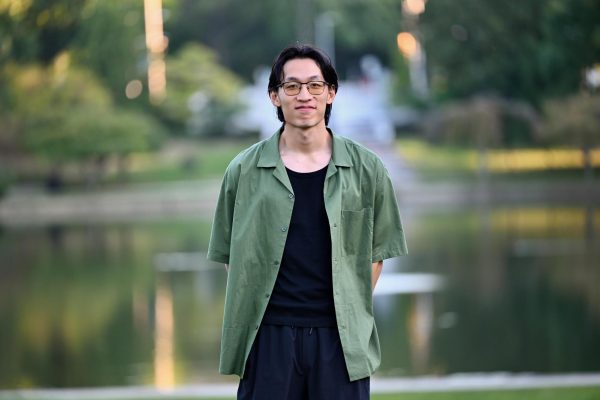Case Western Reserve University is a place where students strive for excellence, leaning on the support of peers, faculty and staff to lead them through their college journey. However, amidst this pursuit lies an unspoken struggle many students face: getting sick and having nobody to turn to. As the seasons change and another wave of COVID-19 strikes campus, more and more students are falling ill, and the limited support from navigators—now four-year advisors—and University Health and Counseling Services (UHCS), in addition to inconsistencies in faculty policies regarding absences, are doing more harm than good. The fact that students find themselves sacrificing rest and recovery in fear that taking some time off could jeopardize their college careers is disgusting.
When many of us joined CWRU, we were told our four-year advisors are here to provide us with “holistic, comprehensive support,” ranging from career exploration to personal wellness. They play a crucial role in guiding decisions about classes, extracurricular activities and our overall college experience; however, when it comes to dealing with illness, the support offered by four-year advisors is often insufficient. They are not trained to handle health-related issues, and as such, much of their help is in providing resources—many of which can be easily Googled—and serving as a liaison between students and faculty. For new students and those unsure about how to deal with illness at college, four-year advisors are often the first to be notified about an illness, and are seen as a student’s primary support. However, in our own experiences, four-year advisors are not all the same. Some are very responsive and helpful, while others may ask students to handle the situation on their own. Across the board, if CWRU expects students to lean on four-year advisors for issues regarding personal wellness, they need to be better equipped to provide guidance on managing coursework, connecting students to appropriate resources and sticking by them throughout the process.
For students seeking medical care, UHCS is often the first place they look. Offering 24/7 care with nurses and counselors on call, as well as in-person appointments during office hours, Health Services is a valuable resource, but one that brings its own set of challenges. While the nurses on-call are responsive, they can provide only limited care via telephone, and students must wait until the clinic opens to schedule an appointment. Even then, the clinic struggles with lengthy wait times on calls and limited appointment availability. This was especially prevalent this past week when construction at the Dental Research Building, where UHCS is located, allowed only a handful of in-person appointments for Health Services and no in-person appointments for those seeking counseling. For those suspected of having COVID-19, UHCS advises students to follow CDC testing protocol and obtain rapid antigen tests from wellness vending machines. However, despite claims that the “[m]achines are filled once each business day,” students will be hard-pressed to find a COVID-19 test in most of the vending machines around campus. For students already dealing with the stress of illness, inconveniences posed by UHCS can make seeking medical care a chore.
Arguably the most difficult challenge students face when dealing with illness at CWRU is the inconsistency in faculty policies regarding absences. While some professors are understanding and accommodating, others may have strict attendance policies and offer no opportunities to make up missed assignments or exams. The lack of a standardized university-wide policy on absences due to illness leads to confusion and anxiety among students. Some professors may require a doctor’s note for every missed class, others may not accept medical documentation as a valid excuse and some may not view all medical conditions as necessitating an absence. For example, the professor of a 200-person lecture-based course stated that “missing [an] exam due to sleeping in or a minor illness (like a cold) will result in a grade of zero. Be responsible and do not take medicine that will impair your performance on a test the night before the test.” Clearly, professors at CWRU are not on the same page when it comes to handling illness-based absences, and these inconsistencies place an undue burden on students who are already debilitated; now, they also fear their academic performance may be at risk. These inconsistencies are especially unacceptable after the societal impact the COVID-19 pandemic had on the university community. In such cases, students are forced to choose between their health and their grades, often opting to sacrifice their health—a dilemma far too many CWRU students have faced. Post-pandemic, the CWRU administration needs to enforce a policy requiring professors to adhere to a strict set of rules regarding how to deal with illness among students, similar to those that professors include in their syllabi surrounding academic accommodations or plagiarism.
Long-term, the lack of adequate support for students dealing with illness at CWRU has severe consequences for their well-being: Delaying seeking medical attention and possibly ignoring health issues altogether worsens students’ mental and physical health. If CWRU really wants to build a “campus culture that supports [our] health and well-being,” they need to start by creating a more supportive environment where students feel comfortable seeking medical care, reaching out for help and taking the time they need to recover. For students to live by “Think well. Be well. Live well,” they need to be able to truly prioritize their health and know that people at CWRU are here to support them every step of the way.




